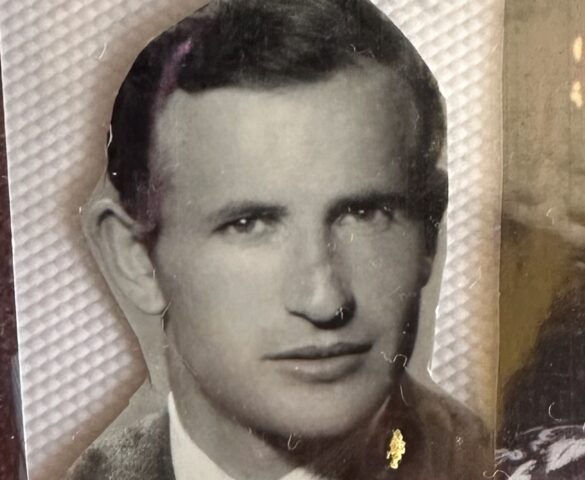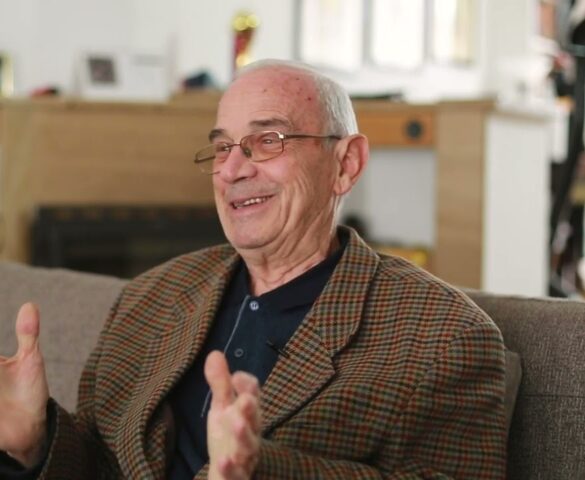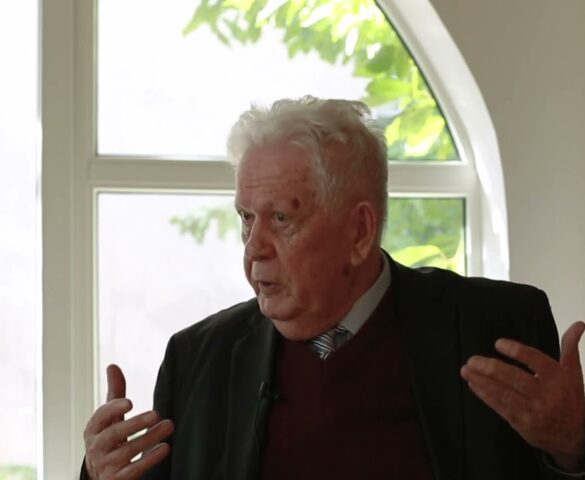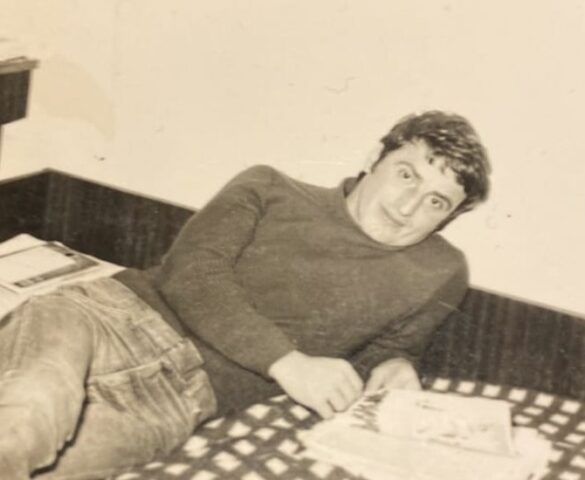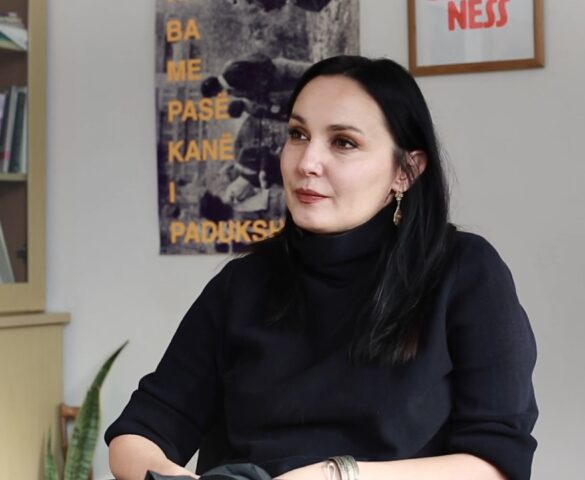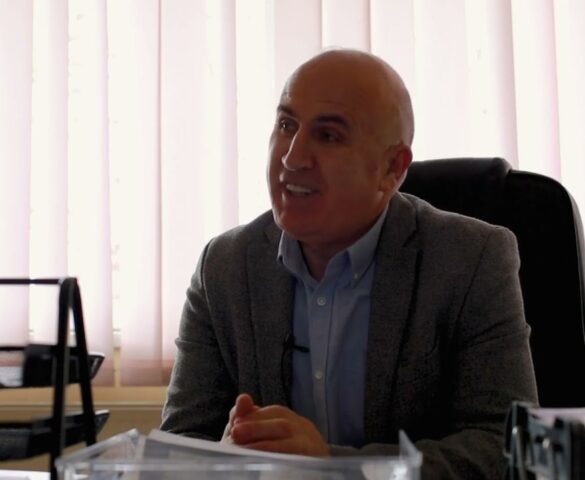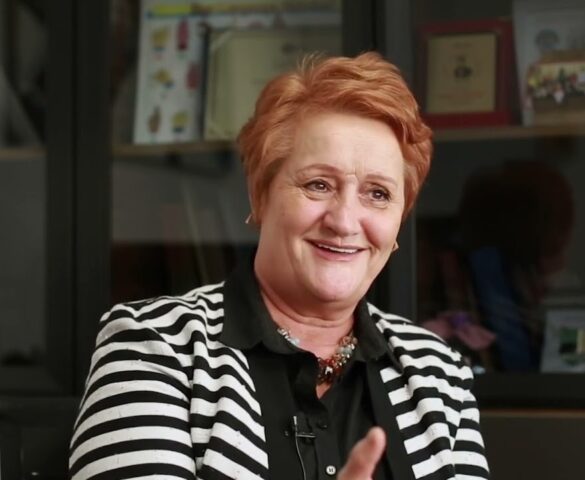The decision came from Rugova, from the president and from other bodies as well, that it was absolutely necessary to organize a nationwide, popular protest [against the expulsion of Albanians from school]…The Teachers’ Union proposed that I serve as the chairman of the protest, yes…The decision, the proposal of the late great Rugova was that the protest should be held, but that it must not cause bloodshed…We held about three meetings a day so that the protest would be exemplary, one that would make the enemy nervous and keep us disciplined. […] That’s how we held the meetings… Fetah Bylykbashi was the chairman. And quote and quote at the end is Fehmi Rexhepi—Fehmi Rexhepi is a doctor of science. Because we had planned that if Fetah Bylykbashi were arrested during the protest, and first wounded, or second, killed, the protest should not stop, and then this Fehmi would come and continue… It was a miraculous organization.
After the abolition of Kosovo’s autonomy in 1989 and the systematic exclusion of Albanians from public institutions under the Federal Republic of Yugoslavia, the 1990s saw the emergence of a parallel education system. With Albanian-language schooling banned, home schools, organized in private houses, basements, and improvised spaces, became a vital form of resistance and survival. Teachers, parents, and students worked collectively to keep education alive in the face of state repression. These grassroots efforts were not only about teaching, but also about preserving cultural identity and asserting political agency. The oral histories of those who taught and learned under these conditions reveal stories of resilience, fear, and everyday defiance.
Fetah Bylykbashi
Former educatorMuhamet Bicaj
Former Minister of EducationI was lucky: I had done my specialization together with Angela Merkel’s husband at the Moscow University. […] Some of the professors who taught us there, English-speaking, American professors, had taught me earlier in Zagreb. I distinguished myself very much. Believe me, when I went to see Merkel after I became Minister of Albanian-language schools [for the Government in Exile], the Serbian state seal was still dominating. I took the seal of the Republic of Kosovo and told them… As soon as he saw the request with my name, her husband asked, ‘Were you at Moscow University?’ The government’s secretary came running, together with Merkel’s staff, and said, ‘ Merkel will receive you at this hour.’ Ilaz said, ‘So fast? Not even two hours have passed.’ I said, ‘He recognized me as a professor.’ I hadn’t even reached Merkel yet when her first question was, ‘Were you at Moscow University?’ I said yes. ‘You were there with my husband.’ I told her, ‘You know, there are many Albanians here. We’ve opened Albanian-language school courses in Germany. I see that the Serbian Republic’s seal still dominates. We have the seal of the Republic of Kosovo. We are a republic now.’ She said, ‘No problem.’ A few days later, half of my teachers and students came to me saying, ‘Minister, Professor, look, the stamp has arrived: Republic of Kosovo.’
Halim Hyseni
Education ExpertWe were in Podujeva. The schools were closed. […] Bajram and I went to visit them. The atmosphere was extremely heavy, the anxiety very great. I told them, the secondary schools were in question, I said, ‘Don’t worry, classes will continue in Albanian.’ That’s where the idea was born. Because at that time, I worked in the office of the Pedagogical Institute, where the Veterans’ Association is now, that’s where we had our offices. I worked until midnight, thinking what to do, how to do it. […] I knew there were around 10,000 police officers in Kosovo. I also knew that we had about 12,000 classes. There was no way to stop education when people wanted to be educated. Under those conditions, in the meadow, in the meadow; in the field, in the field; in the house, in the house.
Xhafer Ismaili
Retired teacherSerbian students fought with Albanian students in Runik…They sent Vahide Hoxha, Fadil Hoxha’s wife, to take care of the incident…That woman was a lady, an incomparable woman. A woman like [Madeleine] Albright… There were communists there who, when something like that happened, liked to act holier than the Pope, acting like they cared so much about Serbs…We were stuck there for almost half the night. Then I spoke. I said, ‘What happened here often happens even among Albanians; they fight. It didn’t happen with any kind of agenda. It didn’t happen because they were Serbs and we were Albanians… We can try to give it whatever meaning we want, but it has no political color, no ethnic hatred, nothing.’ The meeting ended…There was still a café open, we went in for coffee and talked with Vahide. Vahide said, ‘You got us out of a crisis. Morning would’ve caught us there if you hadn’t spoken’… Avdyl Miftari, the history teacher, said, ‘Comrade Vahide, Xhafer wants to stay here all night because he has nowhere else to go, no apartment, no nothing.’ She looked at me and said, ‘You don’t have an apartment?’ I said, ‘No, I don’t.’ She said, ‘You’ll have one.’
Linda Gusia
SociologistWe used to throw little gatherings in the middle of the day, for example. At 12:00 we would draw the curtains shut and then… afterwards we went home to have lunch with our parents. That was the reality. We always had the feeling that we needed to live some kind of normal life, to create a sense of normality, and in that normality, a form of resistance. At the same time, our reality was extremely degrading and oppressive in every aspect of our lives. It’s very interesting how people adapt to inequalities of that scale. For example, everything was segregated. You had to be very careful about where you went to shop, which store you entered, what you did… everything had to be calculated. For someone who was 14 or 15 years old, everything was calculated, and the decisions you made were very important for your own well-being.
Sami Rama
School principal[The Trepça technical school] started the school year ‘94–‘95 in a private house in the Bajr neighborhood, and that’s when the police intervened…It was the 15th of December. It was a cold day, a day with thick fog, very thick fog. While coming to school, the students noticed the police circling around. That house had a yard surrounded by a wall, we came out and closed the gate… But they climbed the wall, entered the yard, and went straight into the classrooms… I remember that they mistreated me in front of the students…Whatever they found on the desks, they threw into the stove, those were iron stoves, and they burned it. They made the students write their symbols on the board. And then, at some point, they let them go. I was savagely mistreated in the hallway… They destroyed the classrooms, they even knocked over the stoves, stoves that were still lit. Before they let me go, they made me grab the lit stoves, I am telling the truth, until my hands were burned.
Bajram Shatri
Education expertThe first-grade class was sitting on the floor, learning the alphabet, writing their first letters on the floor. In Fushë Kosovë, for example, the situation was catastrophic. Those rooms would heat up quickly and get cold quickly. Then it would happen that to get to the classroom, one had to pass through the kitchen or hallway. The idea for home-schools was given by Halim Hyseni. I remember a journalist once told him, ‘What are you going to do there? They cook beans in that room,’ I’m simplifying here, ‘The meal is cooked there, students study there?’ Halim replied, ‘Then you tell me, where else should the students go to learn? Show me a place where food isn’t cooked and we’ll send them there.’
Fazli Hajrizi
EducatorIt’s interesting, to be honest, when both teachers and students were mistreated and [the police] would actually leave, we used to think that the next day, not a single student would show up. But, strangely enough, by the grace of God, everyone was there, no absences. The teachers, the students… of course, I can speak for myself, but also for others, it was enough just to know they were there. And they were close to us, meaning they were by our side. Then we’d calm down and continue the lessons.
[…] I mean, all the students were at school. The bell rang, it was time. Strangely, at the exact minute the bell rang, within three minutes, the entire school was surrounded. Luckily, we tried to stay calm and watched from the windows how they were acting and what was awaiting us, obviously. First, they took us to the third floor, or the second, I’m not sure, but the main thing is they formed two police cordons. Fortunately, the students weren’t mistreated. And among the 30 or 40 of us teachers, it was Professor Muharrem Peci who suffered the worst, he had very serious injuries.
Drita Kadriu
Director of Education in the Municipality of MitrovicaThere was constant pressure because, from time to time, for example, they would come to the schoolyard and ask, ‘What curriculum are you using? Who is the principal here?’ It was a form of patriotism, in a way, to say, ‘The principal isn’t here. We’re in class.’ But schools with only Albanian students had it a little easier than the schools in the city, where both communities were in the same building.
[…] When the schools were closed, the teachers started organizing classes in homes. Lower-grade teachers would take the students into their own homes, while teachers of higher grades, from sixth to ninth, as well as high schools, started organizing in home-schools, which was very difficult. This situation lasted for about six or seven months.
Vehbi Xani
EducatorWe had a front-line house in Lower Klina because we couldn’t use the high school in Skenderaj, since it was the main center here. I later went around schools as an advisor, since those were established a bit later. We held competitions, we organized quizzes, and we even won first place in the region. So, normal activities, even though at the end of such events, they would take us to the station, sometimes beat us, mistreat us, but they couldn’t stop us entirely.
